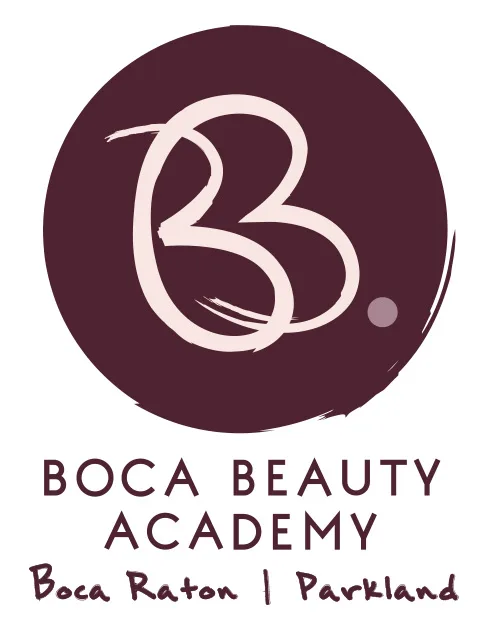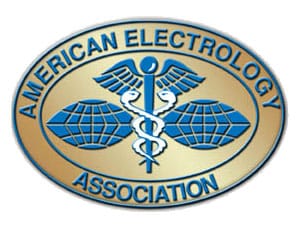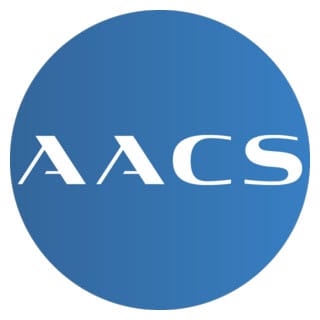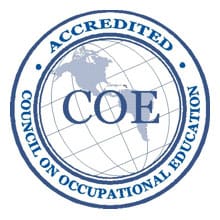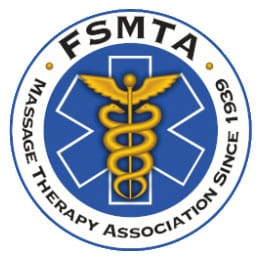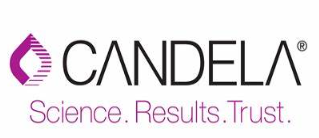In an ever-evolving beauty industry, staying ahead means continually enhancing your skill set and certifications. This is where nail technician classes play a crucial role, not only in honing your craft but also in ensuring you meet the professional standards required for certification. Achieving nail technician certification signifies a commitment to excellence and a readiness to serve clients with the highest level of expertise. Whether you are starting your journey in the beauty industry or looking to advance your career, the right training and certification can set you apart in a competitive market.
This article will guide you through the importance of certification for nail technicians, provide an overview of nail technician classes, and dive into the skills and knowledge you can gain through such courses. Additionally, we’ll offer insights on how to choose the right nail technician course that aligns with your career goals and meets the industry standards.
By the end, you will have a comprehensive understanding of how these classes can help you earn your certificate as a nail technician, marking an important step in your professional development.
Importance of Certification for Nail Technicians
Obtaining a nail technician certification is crucial for your professional growth and success in the nail care industry. It not only demonstrates your commitment to excellence but also provides numerous benefits that can elevate your career.
Why Certifications Are Necessary
Nail technician certifications are often legally required to practice professionally in many states. By getting certified, you ensure compliance with necessary regulations and standards, avoiding potential legal issues and enabling you to practice your profession without any hindrance. Certification also guarantees that you adhere to professional standards that protect both you and your clients.
Benefits of Being Certified
- Enhanced Credibility and Trust: Certification instantly boosts your professional credibility. It reassures clients that you possess the necessary skills and knowledge to provide high-quality services. As a certified nail technician, you can build trust with your clients, which is fundamental for developing a loyal customer base.
- Comprehensive Training: Certification programs offer comprehensive training that covers a wide range of techniques and practices. You will be well-versed in all aspects of nail care, from basic manicure and pedicure procedures to advanced nail art and design. Additionally, you will learn proper sanitation and hygiene practices, which are crucial for client safety and satisfaction.
- Increased Job Opportunities: Certified nail technicians often find more job opportunities available to them compared to their non-certified peers. Many salons, spas, and beauty establishments prefer to hire certified professionals because it guarantees a certain level of expertise and reliability.
- Higher Earning Potential: With enhanced skills, credibility, and job opportunities, certified nail technicians have the potential to earn higher salaries and command premium rates for their services, resulting in significant financial benefits over time.
- Continuous Learning and Growth: Certification programs often include continuing education components that keep you updated with the latest developments in nail care, innovative designs, and cutting-edge products. This continuous learning can set you apart from competitors and enhance your professional growth.
- Networking Opportunities: Certification programs provide valuable opportunities to connect with industry professionals and peers, leading to potential job opportunities, mentorship, collaborations, and long-term professional relationships that support your career advancement.
- Personal Satisfaction and Confidence: Earning your nail certification is a significant accomplishment that can boost your confidence and sense of achievement, knowing that you have met rigorous standards and are recognized as a professional in your field.
By obtaining a nail technician certification, you demonstrate your expertise, commitment to quality, and dedication to your craft, setting the foundation for a successful and rewarding career in the nail care industry.
Overview of Nail Technician Classes
Nail technician classes provide comprehensive training to equip you with the necessary skills and knowledge to excel in the nail care industry. These programs cover a wide range of topics, from basic manicures and pedicures to advanced nail art techniques.
Types of Classes Available
You can enroll in various nail technician courses, including:
- Manicure and Pedicure Programs: These classes teach you the fundamentals of nail care, such as proper hand and foot treatments, nail shaping, cuticle care, and polish application.
- Nail Enhancement Courses: Learn about different nail enhancement techniques like acrylic nails, gel nails, and nail tips. These classes cover application methods, maintenance, and removal procedures.
- Nail Art Programs: Explore your creativity by learning various nail art techniques, including hand-painted designs, 3D nail art, and intricate patterns.
- Nail Technology Programs: These comprehensive courses cover all aspects of nail care, from basic services to advanced techniques, ensuring you gain a well-rounded education.
Duration and Structure of Classes
The duration and structure of nail technician classes vary depending on the program and state requirements. Full-time programs typically last 10-12 weeks, while part-time options may extend over several months.
The curriculum is designed to provide both theoretical knowledge and hands-on practical experience. Classroom instruction covers topics such as nail anatomy, health and safety protocols, client consultation, and business practices. Practical training takes place in a simulated salon environment, where you can practice your skills on mannequin hands and feet, as well as real clients.
Many programs also incorporate exam preparation components to help you pass the state board exam, which is a requirement for licensure in most states.
Skills and Knowledge Gained in Nail Technician Classes
Nail technician classes equip you with a comprehensive set of practical skills and theoretical knowledge essential for success in the nail care industry. Here’s what you can expect to gain:
Practical Skills
- Mastering Nail Services: You’ll learn the proper techniques for performing various nail services, including manicures, pedicures, nail shaping, cuticle care, buffing, exfoliation, and massage. These hands-on skills are crucial for providing professional and satisfactory services to clients.
- Nail Enhancements and Art: Nail technician programs cover advanced techniques such as applying acrylic nails, gel nails, nail tips, and intricate nail art designs. You’ll develop the artistry and precision required to create unique and visually appealing nail enhancements and designs.
- Sanitation and Safety Practices: Maintaining a safe and hygienic environment is paramount in the nail care industry. You’ll learn proper sterilization techniques for tools and equipment, as well as sanitation protocols for client and technician safety. This knowledge is essential for preventing the spread of infections and ensuring a clean workspace.
- Client Consultation and Record-keeping: Effective communication and record-keeping are vital skills for nail technicians. You’ll learn how to conduct client consultations, evaluate nail and skin conditions, recommend appropriate services or products, and maintain accurate client records.
Theoretical Knowledge
- Nail Anatomy and Health: Understanding the structure and function of nails, as well as common nail diseases and disorders, is crucial for providing safe and effective services. You’ll gain in-depth knowledge about nail anatomy, growth patterns, and potential health concerns.
- Product Knowledge: Nail technician classes cover the properties, uses, and effects of various nail products, including polishes, removers, primers, and treatments. This knowledge allows you to select the appropriate products for each client’s needs and ensure their safe application.
- Salon Operations and Business Practices: In addition to technical skills, you’ll learn about salon operations, client management, and business practices. This includes topics such as setting up a workstation, maintaining a professional environment, and understanding relevant laws and regulations.
- Continuing Education and Industry Updates: The nail care industry is constantly evolving, with new techniques, products, and trends emerging regularly. Nail technician programs often incorporate continuing education components to keep you informed about the latest developments and best practices.
By combining practical skills and theoretical knowledge, nail technician classes provide a comprehensive foundation for a successful career in the nail care industry. You’ll be equipped with the expertise to deliver high-quality services, ensure client safety, and stay up-to-date with industry advancements.
How to Choose the Right Nail Technician Course
Choosing the right nail technician course is crucial for your professional development and success in the nail care industry. You want to ensure that the program you enroll in aligns with your career goals, provides comprehensive training, and meets industry standards. Here are some key factors to consider when selecting a nail technician course.
Factors to Consider
- Accreditation and Recognition: Opt for accredited programs recognized by relevant industry bodies or state boards. Accreditation ensures that the curriculum meets established standards and provides quality education. Graduating from an accredited program may also be a prerequisite for obtaining a license in some states.
- Curriculum and Course Content: Evaluate the course curriculum to ensure it covers all essential aspects of nail care, including theoretical knowledge, practical skills, sanitation protocols, and business practices. Look for programs that offer hands-on training, as well as instruction on advanced techniques like nail enhancements, nail art, and client consultation.
- Instructors’ Expertise: The quality of instruction plays a significant role in your learning experience. Inquire about the instructors’ qualifications, industry experience, and teaching methods. Experienced instructors can provide valuable insights and guidance to help you develop your skills effectively.
- Program Duration and Schedule: Consider the program’s duration and schedule to ensure it aligns with your availability and learning pace. Full-time programs may be more intensive but shorter, while part-time options offer flexibility for those with other commitments.
- Hands-on Training Opportunities: Practical experience is essential in the nail care industry. Look for programs that provide ample opportunities for hands-on training, either through simulated salon environments or internships with real clients. This hands-on experience will help you develop confidence and refine your skills before entering the workforce.
- Licensing Exam Preparation: Many states require nail technicians to pass a licensing exam before practicing professionally. Choose a program that includes comprehensive preparation for these exams, covering both theoretical and practical components.
- Career Services and Job Placement Assistance: Reputable nail technician programs often offer career services and job placement assistance to help graduates transition into the workforce. These resources can be invaluable in finding employment opportunities and building professional connections.
Where to Find Courses
Once you have identified your criteria, you can explore various options to find the right nail technician course. Here are some potential sources:
- Beauty Schools and Vocational Institutes: Many specialized beauty schools and vocational institutes offer dedicated nail technician programs. These institutions often have well-established curricula and experienced instructors.
- Community Colleges: Some community colleges offer nail technician courses as part of their cosmetology or esthetics programs. These options may be more affordable and provide a well-rounded education.
- Online Programs: While hands-on training is essential, some reputable institutions offer online courses or hybrid programs that combine online instruction with in-person practical training. These can be convenient for those with scheduling constraints or geographical limitations.
- Professional Associations and Organizations: Industry associations and organizations may provide information on accredited nail technician programs or offer their own training courses and certifications.
- Apprenticeships and On-the-Job Training: In some cases, you may have the opportunity to learn through apprenticeships or on-the-job training under the guidance of experienced nail technicians. These options can provide valuable real-world experience, but be sure to verify that they meet your state’s licensing requirements.
Remember, investing in the right nail technician course can set the foundation for a rewarding and successful career in the nail care industry. Take the time to research and compare your options to find the program that best suits your needs and aspirations.
Conclusion
Through the comprehensive guide provided, it’s clear that nail technician classes hold significant value for those aiming to excel in the nail care industry. Certification not only validates your skills and knowledge but also opens doors to higher earning potential, job opportunities, and the satisfaction of providing quality services. Equipped with skills ranging from basic manicures and pedicures to advanced nail art and enhancement techniques, certification courses prepare aspirants for a successful career, ensuring a high standard of service and safety protocols in practice. The importance of selecting the right course cannot be overstated, as it lays the foundation for professional growth and client trust.
Insights shared on how to choose the appropriate nail technician course further stress the importance of accreditation, a comprehensive curriculum, and experienced instructors, alongside adequate hands-on training opportunities. Meeting these criteria ensures that students not only pass their licensing exams but also thrive in a competitive market. The landscape of nail care is continually evolving, and through proper education and certification, technicians are well-positioned to stay at the forefront, providing innovative and high-quality services.
This educational journey doesn’t just signify the acquisition of a certificate; it marks the beginning of a rewarding career path, filled with opportunities for continuous learning and advancement in the beauty industry.
FAQs
What qualifications are necessary to become a nail technician?
To become a nail technician, you should pursue postsecondary training. This involves attending a cosmetology or nail school, which may be specialized or part of a broader cosmetology program, depending on the state’s requirements.
